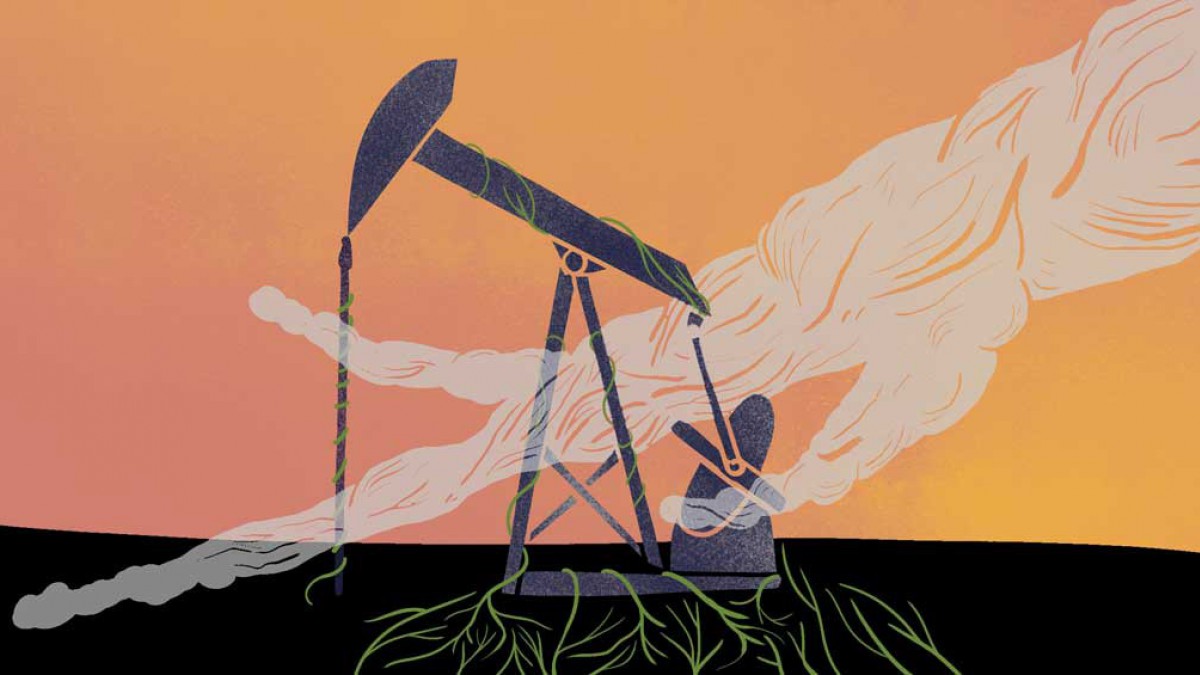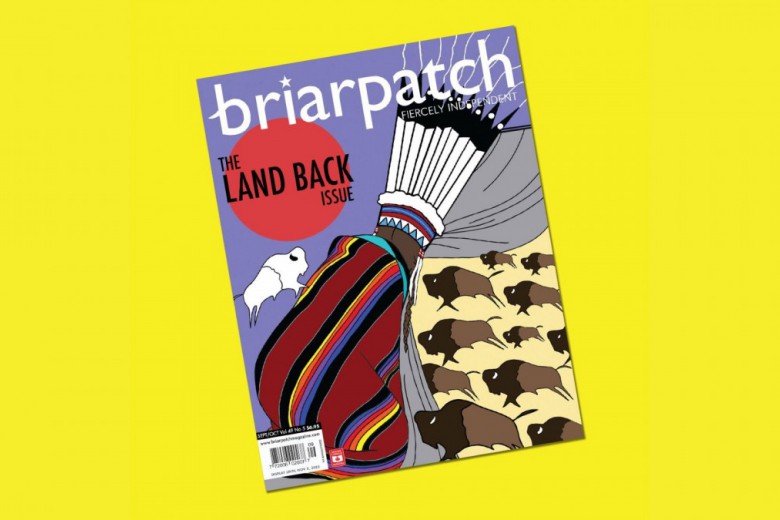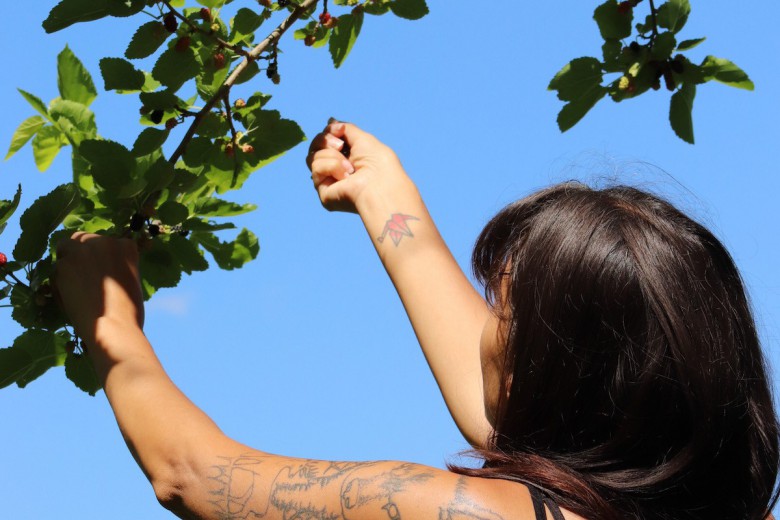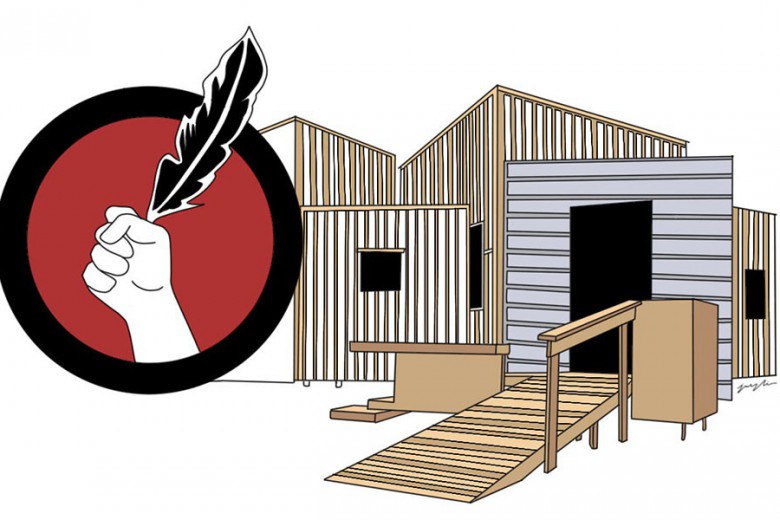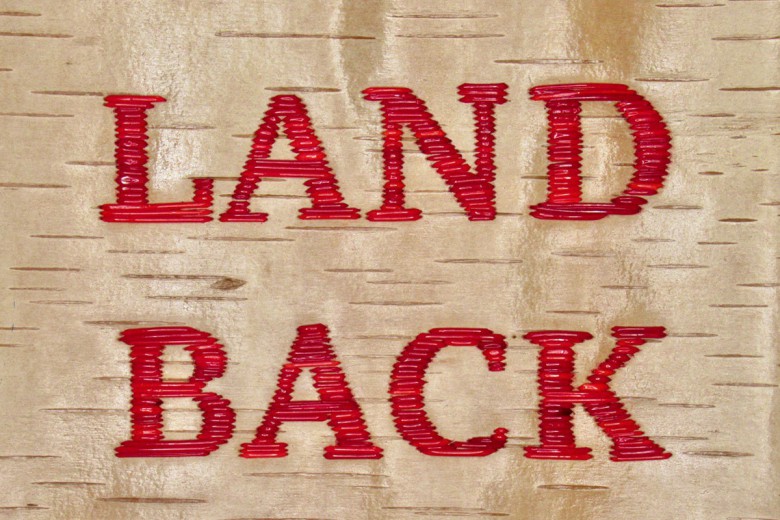Every time there is a new direct action against a pipeline, social media posts pop up on my timeline, talking about how the only way to save the planet is to return the land to Indigenous peoples.
But, I wonder, do we owe non-Indigenous people saving?
As nêhiyaw legal scholar Sylvia McAdam writes in her book Nationhood Interrupted: Revitalizing nêhiyaw Legal Systems, when nêhiyawak write or speak about the return of our territories, “‘Give it back’ means to restore the livelihood, demonstrate respect for what is shared – the land – by making things right through compensation, restoration of freedom, dignity, and livelihood.”
As someone who grew up in Alberta, surrounded by the effects, benefits, and culture of oil extraction, it is difficult for me to think about Alberta ever transitioning to a carbon neutral economy. Life in Alberta – even Indigenous life – is so saturated with the effects of the oil industry that I have attended round dances sponsored by oil companies. How distressing to think about renewing our obligations and relationships to each other and the land with a meal sponsored by a corporation that is quickly making that land uninhabitable. I look at a map of my territory with the pipelines superimposed, the lines criss-crossing our hunting grounds, lands from which ingredients of that feast meal were sourced.
Far away from a round dance midnight lunch of bologna, in an organic grocery store in Edmonton, I pick up a package of organic bison that will be bought by some white family whose dad works in Fort McMurray. Our relation wrapped in plastic, labelled an incorrect name. I often think about how those who can afford to buy organic groceries in Alberta probably have their salaries paid by an oil company, or directly benefit from the wealth derived from our territories. The extraction of this wealth threatens our ability to sustain ourselves from our land – despite the promises made to Indigenous people in treaties that we would continue to be able to hunt and fish. After treaty, my ancestors were forced to transition from an economy that centred the buffalo hunt to farming. Now we, their descendants, are facing another kind of world-threatening catastrophe. As we hurtle toward a climate apocalypse, we are all collectively practising a massive compartmentalization exercise in order to go on with our everyday lives.
I remember that we are blessed enough to be left with directions in the treaties – ones that, if heeded, would be able to combat environmental destruction in our homelands.
I am emphatically against building new pipelines. But when I see white environmental activists calling for pipelines to be shut down in my homelands, I wonder who from our communities, who from that land gave them the direction to do so. White environmentalists so often use our title to further their projects, abandoning Indigenous communities and bodies once they have achieved their goals. Like white environmentalists, oil companies seek ‘consent’ from patriarchal, heterosexist Indian Act leadership. Few oil companies or white environmentalists are seeking permission from those whose intelligence and care will provide us with more just ways of living with the land and each other – Indigenous women, trans, queer, two-spirit, and non-binary people from our nations.
Back in that organic grocery store with my Saran-Wrapped relative, in moments like these when the weight of our entire imbalance crashes down on me, I return to treaty.
It is in returning to our conceptions of treaty that I remember our ancestors planned for us to remain in our homeland through another apocalypse. I remember that queer people were at the negotiation of those treaties. I remember that we are blessed enough to be left with directions in the treaties – ones that, if heeded, would be able to combat environmental destruction in our homelands. This means settlers returning our territories, but also Indigenous people renewing our own commitments to governance systems that honour women and gender diverse people. Any attempts to block pipelines or destroy capitalism without this work will continue to replicate contorted versions of our current reality.
And if we renewed these treaty commitments and “demonstrate[d] respect for what is shared,” as McAdams writes, perhaps I would see more buffalo out on the land and not wrapped in plastic at the grocery store.


